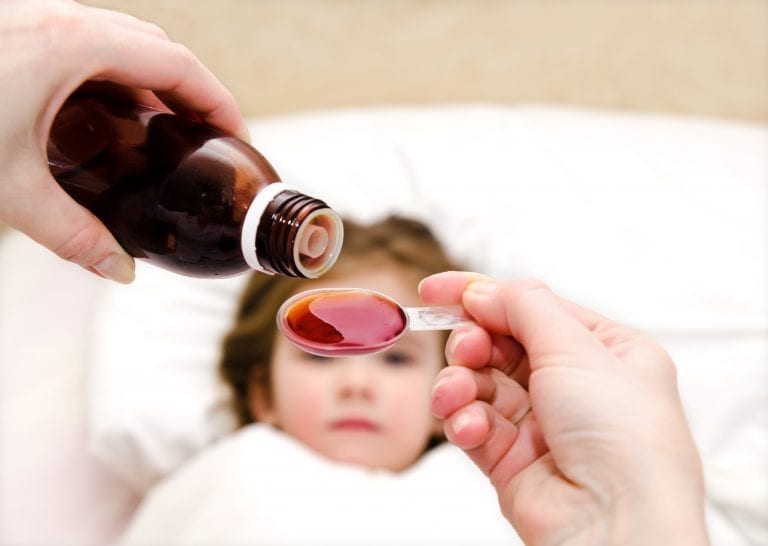Adults and babies have different medication needs and instructions—here’s help on how to make sense of managing medications.
As a pharmacist, I talk with a lot of people about their medication concerns. Here are some of the most common questions I get when it comes to managing medications:
Can you stop antibiotics when you feel better?
Just because you or someone in your family is sick doesn’t mean they need an antibiotic. Some illnesses, though, can only be treated with antibiotics. You may have heard recent chatter that a full course of antibiotics is no longer necessary. However, more research is needed until this is proven true.
Stopping antibiotics too soon could leave bacteria in your body, which can multiply and make you or your loved one sicker—it can also lead to antibiotic resistance. Always take antibiotics for as long as prescribed by your healthcare provider.
What medicines can I take when I’m pregnant?
First, recognize that when you take medication in pregnancy, you’re “treating for two,” as the CDC indicates. Talk you your pregnancy care provider about the safety of any prescribed or over-the-counter medications you may need while growing your baby. As a general rule, experts advise against trusting online lists of what may or may not be safe in pregnancy.
Also, your pharmacist can share their recommendations at each stage of pregnancy. For example, a medication that’s considered safe during the 1st trimester may not be safe in the 2nd or 3rd trimesters, and vice versa.
How can I be sure I’m giving the proper dose?
For liquid medicines, most pharmacies will supply a syringe or cup at no cost and your pharmacist can mark the fill line if you’re unsure or if the directions are difficult to understand. The safest way to dose liquid medicines is to measure them out in milliliters (ml) into a medication-specific measuring device.
If the dose prescribed isn’t given in milliliters, ask your pharmacist to convert it for you. If a dose involves splitting a tablet or pill, use a splitting device to ensure you evenly divide the doses.
For babies, toddlers and young children, medicine is dosed according to their weight, so it’s important to give the proper amount. Use a medication-specific measuring cup, dropper or spoon. Teaspoons are for cooking and can vary greatly in the amount they provide—they’re not safe for dosing medicine.
My child won’t take their medicine—help!
For babies, take it slow, providing a little bit of the medication at a time just inside their cheek with a dropper or infant spoon. Don’t try to have an infant or toddler swallow an entire dose at once. Measure it out and then using the dropper or spoon provided give small portions, ensuring they’re swallowing as you go, with rest breaks between each mini-dose.
For older children, try making it into a game, or give them a reward for taking their medicine (a simple high-five might even do the trick!). Also, ask your pharmacist about flavoring liquid medicines.
If the medicine doesn’t all go down, don’t re-dose. Some drugs are harmful if too much is given. It’s better to be safe than to give too much. If this continues for multiple doses, talk to your healthcare provider or pharmacist about other ways to treat your child’s condition.
What if my child gets too much medication, or takes someone else’s meds?
Call Poison Control at 800.222.1222 to reach the closest call center, which is staffed by healthcare specialists specifically trained to handle these situations. Your information remains confidential and the services are free.
Never induce vomiting as this can potentially cause more problems and isn’t proven to improve symptoms or get rid of toxins quicker.
When should I throw away old medication?
All prescription and over-the-counter medications have expiration dates. While out-of-date medicine may not cause you any harm (though it could), it can’t be guaranteed to do its job, either.
For prescription meds, the general rule is to throw it away if it’s been more than a year from the day it was filled. For antibiotics, often you’ll get more medication than you need for the full course, throw it away after you finish the prescribed amount. Most liquid antibiotics expire after 10-14 days—don’t save leftovers for the next time you feel sick.
How should I get rid of old medication?
Check with your local resources to see if they have places you discard unused medication; typically fire or police stations have programs for this. Or follow this advice from the FDA on safe disposal:
- Mix the medication with something undesirable—such as coffee grounds, dirt or kitty litter—to prevent pets and children from ingesting it
- Seal the mixture in a plastic bag and dispose of it with your household garbage
- Mark out or shred any labels to destroy any personal information before tossing bottles or packaging
Certain medicines like opioids shouldn’t be disposed of this way; always check how to get rid of specific unused medications at bit.ly/FDAsafedisposal.
Tip
Never give your child aspirin, as it’s been linked with a serious condition called Reye’s syndrome. It’s especially dangerous for children with chickenpox or the flu. Talk to your pharmacist about other medicines that contain aspirin.






Comments are closed.